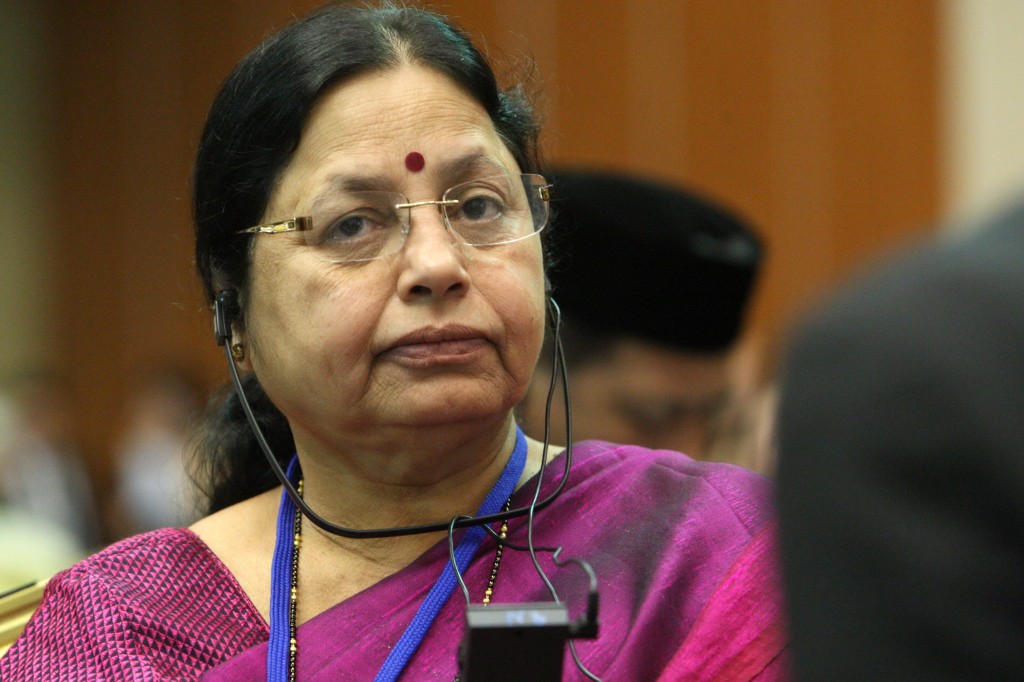To know the religion of another person means identifying oneself with the other person’s sense of being a Hindu, Muslim, Jew, Christian or whatever faith the person belongs to. It requires that we empty ourselves completely so that we receive from others. Thus, the first step consists in getting acquainted with others’ faith. Then, from acquaintance we have to move into the second step that is appreciation of what is beautiful in other’s faith: charity in Christianity, brotherhood in Islam, open mindedness in Hinduism! From appreciation we go into the third step, which is respect and from respect we move towards harmony. It is like the natural growth of a plant that comes from the nothingness of the seed, like the empty mind and sprouts into a huge tree with so many branches, no branch inferior and no branch superior.
What makes us indifferent about others’ faith is our ego and our insensitivity. We have lived on this earth for more or less a million years; yet we are as primitive as we were before. We kill one another, try to snatch power and we use religion to serve selfish ends and not for our yearning to experience God in our hearts and in His creation. If such hostilities were to break out over and again in our global village, the world that we inhabit today, we would be destroying others without realising that thereby we would be destroying ourselves too. If each religion is up in arms against another, all religions would disappear and what will remain would be sheer materialism.
Against this background can we learn to recognise the enormous potential of religion to refine man, to make him more considerate, kind and sympathetic towards others?
The answer is yes, depending on what aspect of religion attracts us. There is nothing wrong with focusing on theological or ritual discussions, however, if we miss the moral precepts, the manner and the spirit in which the masters of a religion lived, we miss the core of religion. Mahatma Gandhi said, “Ours has become an age of hypocrisy and insincerity. Men, to whatever religion they belong, care only for the external aspects of religion, and give the go-by to all its fundamental principles. In their lust for accumulation, they forget that they cause, or are likely to cause, harm to others.” And what is the sum total of moral precepts in world religions? Mahatma Gandhi says, “A moral rule is a statement of a condition of social welfare and the highest moral law is that we should work unremittingly for the good of mankind.”
An interfaith dialogue, through congress or summit, is one of the ways to find out once again the true spirit of each religion. But this should not remain a theoretical task. It also needs action. Reformation of religion is a debatable issue. However, instead of pointing out lapses in others’ religion, one can recognise the virtue in them. One should not at least condemn others’ religion. The reverence to various forms of worship must be shown at the right time and right place. We all know that coexistence is not a subject to be merely talked about; it is something that needs to be practiced. And while we over-emphasise religious freedom, we must not forget the words of Victor Hugo: “The liberty of one individual ends where the liberty of another individual begins.”
An ideal person is not one who can but one who does act on what he believes. Nursultan Nazarbayev, President of the Republic of Kazakhstan, is the one who does. He has held the Congress of Leaders of World and Traditional Religions and opened a new page in the history of mankind. He has also established the Council of Religious Leaders. His initiatives have created an atmosphere of goodwill amongst religious leaders. Now, the question that lingers in the minds of all of us is: What next?
Today, in many countries, we find a few youngsters who genuinely and sincerely practice their religion. However, on average, youth today are neutral about religious issues, getting absorbed by the materialistic and consumerist society. In some cases, a few of them are obsessed by the superiority of their religion and the obsession may give rise to fundamentalism. Some may even fall prey to the extremists’ agenda and join camps where they get military training for carrying out acts of violence in other countries. Politicians and religious leaders coming together should make an effort to dissuade the youth from taking such suicidal step. It is also absolutely necessary to put an end to such trainings in all parts of the world. The politicians should ban such trainings and the religious leaders should use their influence to discourage such unruly youth from treading the path from which there is hardly any return. This should be the outcome of the Council of Religious Leaders, Congress of Leaders of World and Traditional Religions and the sincere engagement of President Nazarbayev.
The desire for a deep unity and for a right understanding of religion is expressed in the following verse of the Shvetasvatara Upanishad, the Hindu scripture (4.1): “He who is one, and who dispenses the inherent needs of all peoples and all times, who is the beginning and the end of all things, may He unite us with the bond.”
The author is the Director of K. J. Somaiya Bharatiya Sanskriti Peetham, India.


